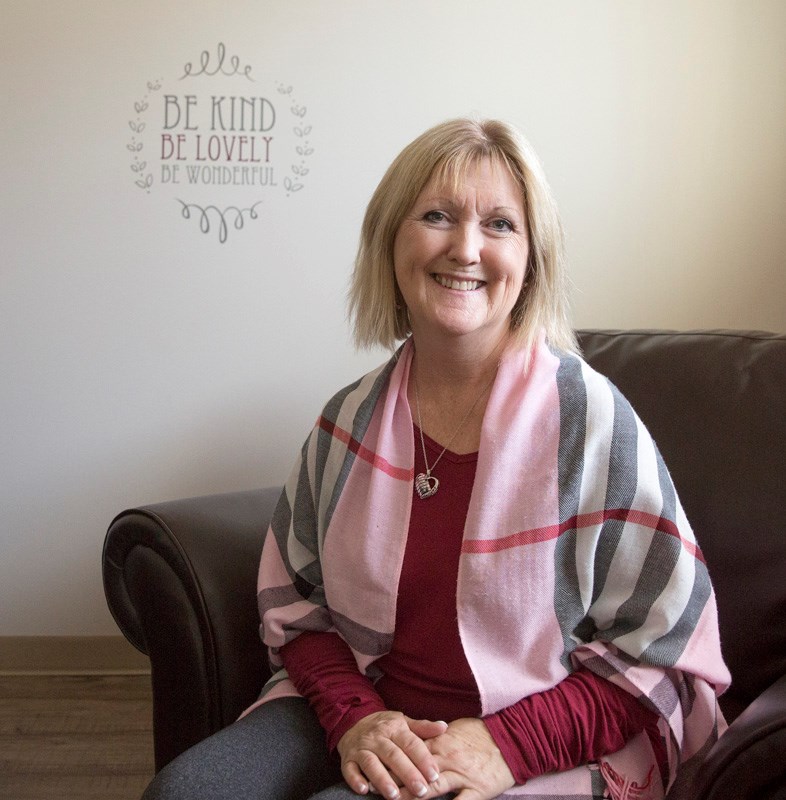Keeping women and children safe takes more than just a roof over their heads. At Rowan House Emergency Shelter, families often arrive with nothing but the clothing on their backs when they flee a dangerous situation. “Women do not show up at Rowan House with a suitcase,” said executive director Sherrie Botten. “They come with just them and their children, so we provide everything they need.” That includes a new pair of pajamas for their first night, underwear, socks, clothes, toiletries and food, she said. “I think it’s hard to imagine sometimes that women wouldn’t even have the time to pack up a little bag,” said Botten. “They come with nothing, children come with nothing.” It costs an average of $200 per day to provide shelter, necessities, and counselling or other support for each person in the house, she said. The women do not pay for anything themselves during their stay. That’s why Rowan House is one of 10 charities for this year’s Western Wheel Cares Campaign – to raise funds for general operations and provide the basic necessities and care for families seeking refuge. “Sometimes we think of the basics as just the food and the housing, but it’s the bedding and the linens and the clothes,” said Botten. “They may be here for up to 30 days, so of course they need a couple of pairs of pajamas and a few pairs of underwear, that kind of thing.” Beyond the physical necessities, women and children also have access to 24-hour support at Rowan House to help them process their traumatic experiences and guide them through the first stages of recovery, she said. She said children have experienced the same trauma as their mothers through what they’ve seen, heard and felt in their home leading up to their stay at Rowan House, and that tension is brought with them to the shelter. “We have counsellors who are available 24 hours a day, we have counselling sessions that go on during the night, so it’s a pretty busy place,” said Botten. “We don’t kind of just open everyone up at 9 a.m. and back to bed at 9 p.m. There are lots of things going on during the night.” Sometimes women struggle to sleep and need someone to talk to, or wait until their children have fallen asleep before they can deal with their own trauma and process their experiences, she said. At the same time, they are considering what their next steps will be, how they will make ends meet on their own, where they will live, and how they will keep themselves and their children safe after leaving Rowan House, she said. For some women, these things must be taken care of from Rowan House, because they may not be safe travelling outside of the shelter, she said. “Those are the things we can help her with, using the resources in [High River],” said Botten. “We try to connect her and use the resources that are here for her.” Rowan House runs a budget of just over $2 million, of which $800,000 must be fundraised in order to sustain its operations, including the basic needs and prevention work in the community, she said. Over the past year, the shelter has increased its outreach programs and prevention programs that are hosted in High River and Okotoks, she said. “We go into the schools and talk to kids about bullying, healthy relationships, dating violence, so that’s a positive,” said Botten. “We also offer Healthy Relationship and drop-in groups for adults and women in the community.” She said the next step will be to establish transitional housing, which Rowan House is hoping to build in Okotoks as a second stage for women fleeing domestic abuse. It’s particularly important as the number of intake calls at the shelter has risen by 25 per cent over the past year, but admissions have not been able to increase because the shelter is capped at 24 women and children, she said. That means more women have had to be turned away and possibly moved out of their own communities to find help, she said. Transitional housing would alleviate some of the pressure on the shelter itself, she said. “Many women will stay in an emergency shelter longer than they need to,” said Botten. “They’re ready to move out into the community but they need to move into something that is safe and affordable and still has the support of Rowan House staff. “So having the transitional housing will be great because we’ll still have high security but longer term and not communal living.” Other charities in this year’s Wheel Cares campaign are Foothills Country Hospice, Foothills SNAPS, Sheep River Health Trust, Magic of Christmas, Okotoks Food Bank, Big Brothers Big Sisters of Calgary and Area, Habitat for Humanity Foothills, St. Vincent de Paul and Okotoks Pound Rescue. Donations to the Wheel Cares Campaign can be made via credit card, debit, cash or cheque (payable to Western Wheel Cares) at #9 McRae Street, mailed to Box 150 Okotoks, AB T1S 2A2 (please do not mail cash) or by calling 403-938-6397. Visit www.westernwheel.com to donate using Paypal. Donations of $10 or more will receive a 2018 official tax receipt at the end of the campaign. For more information call the Western Wheel office Monday to Friday from 9 a.m. to 5 p.m. at 403-938-6397.




